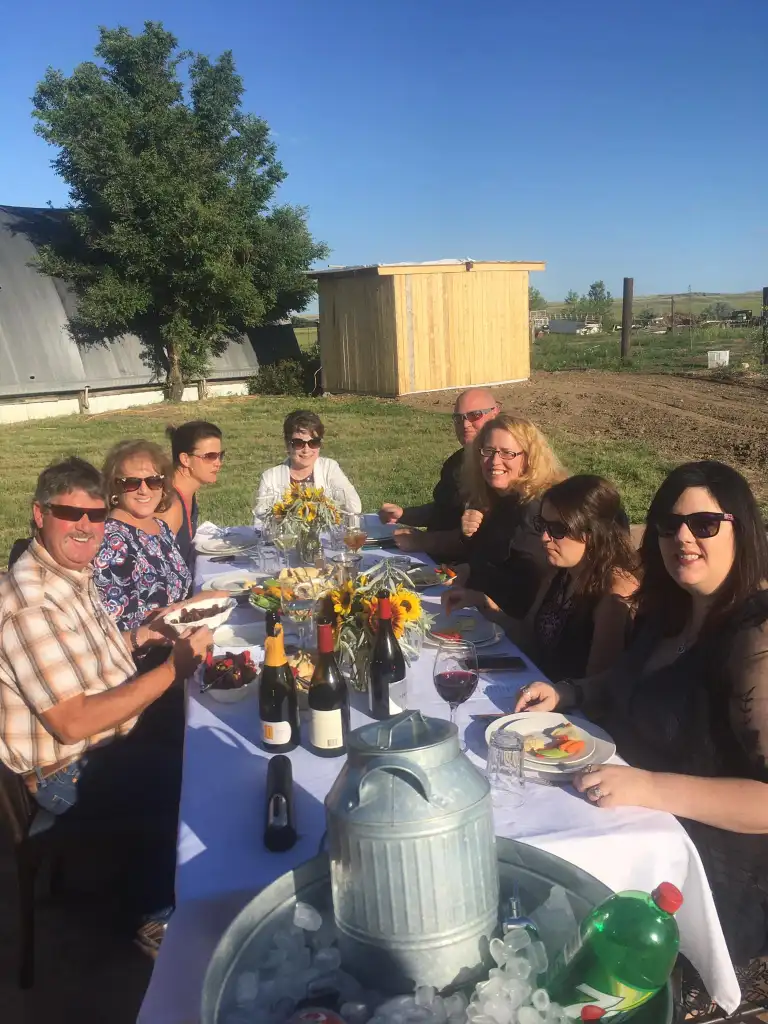Community Adaptability and a Good Sense of Humor


Thayne Mackey, from Hi-Line Kitchen Processing and Garden Center in Malta, MT, has known first hand the importance of community-grown food for a long time.
“In the Hi-Line if we don’t have our own consumable products we’re gonna starve to death. We don’t get good produce here, it comes from California or Mexico. We can grow it better here.”
In the kitchen at Hi-Line Kitchen, community members come together to cook, prepare, and can food from a variety of Indigenous, Scandinavian, and English food traditions. The kitchen space sees jams and wines made from local currants, chokecherries, serviceberries and crab apples. A few people make dandelion wine and jam. Older generations bring their own wheat to grind into flour. Some make head cheese and tripe.
“We had a lot of younger people who wanted a bunch of little, old ladies to teach them how to make jams and jellies, so we just built a big kitchen to make it happen. It’s multi-generational, very matriarchal.”

The Hi-Line Kitchen is indeed a shared space where food preparation traditions are shared. High school students use the space for a yearly service project, while older generations share stories and memories of food.
With the shutdowns of COVID-19, communities in the Hi-Line faced shortages of many basic necessities like sugar, flour, and canning supplies. So Thayne and other community members breached the food system gaps themselves.
“We went down to the sugar beet factory in Billings and brought [sugar] home by the ton. We went to several different flour mills and picked up flour. This year most people’s gardens got wiped out. We got vegetables from the store this year. A lot of the pickling spices were hard to get. Canning lids were hard

to come by.”
The community has a history of supporting itself, particularly as transportation continues to be a significant barrier in supporting the local food economy. The plant nursery at the Hi-Line sells trees and vegetables for transplant and production for the local community, with the goal that everyone has the knowledge and skills to support each other. In September,

Thayne and others hosted a pig roast for the community. And as with many things at the Hi-Line, it was a community building process.
“The pig roasting part didn’t go as planned. The pig spit wasn’t big enough to hold the whole pig. I call it the Great Pig Disaster of 2021. But everyone was laughing and smiling, and got fed anyway, so we did something right.”
